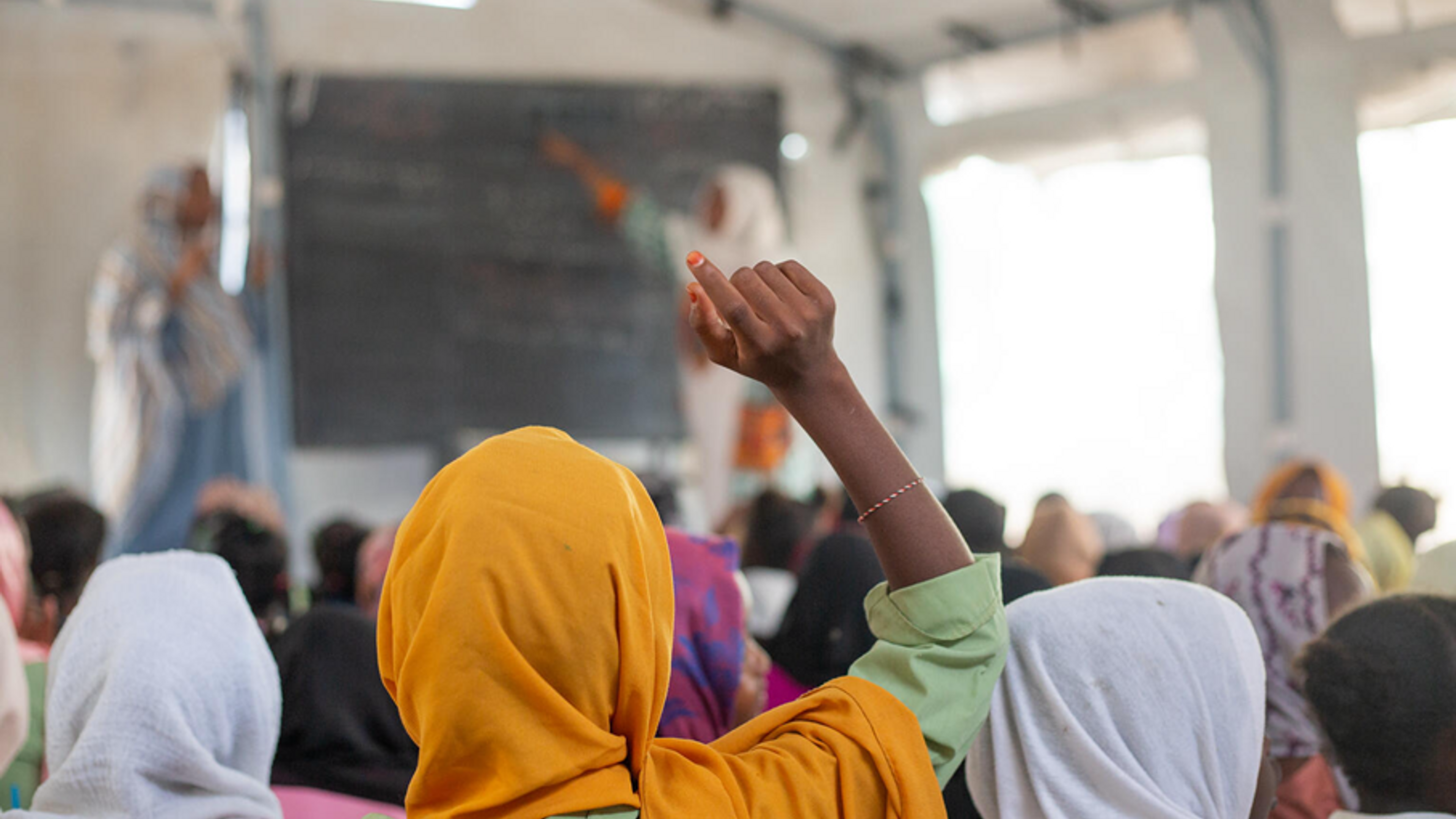Project Alpha: Solar-powered education and healthcare in conflict zones through sustainable energy investment
 © UNICEF/Mohamdeen
© UNICEF/MohamdeenWhat is the challenge?
In 2022, global investments in energy transition technologies rose to an unprecedented USD 1.3 trillion. Despite this historic achievement, the current investment rates fall short of providing effective solutions for climate change and socio-economic development, especially in conflict-affected regions where investors may hesitate to engage.
For example, UNICEF and sister UN agencies initiated the installation of solar energy in the Sub-Saharan area to bridge the gap between reliable energy sources and essential health and educational services in humanitarian contexts. However, similar past projects in educational and health institutions have faced sustainability challenges, primarily attributed to financing and implementation issues. As a result, both public and private sector investors have expressed hesitations to invest in conflict-affected regions due to perceived high risks.
Insufficient sustainable and reliable energy sources does not only impact mental and psychosocial health for children, but also exacerbate access to education. There is an urgent need to ensure the presence of reliable energy sources so that children can access essential online tools, such as digital learning and telehealth platforms, from home. Without this, ‘energy poverty’ will continue to leave many behind on the path to achieving the Sustainable Development Goals.
What is innovative about the project?
Project Alpha aims to tackle the lack of a viable business models for maintaining solar investments by attracting private sector investment in sustainable energy in conflict-affected countries, thereby increasing access to other innovative solutions such as digital learning and telehealth platforms. It applies a modular approach with three different modules that each help the other to support the projects sustainability:
The first module focus on identifying and procuring digital tools that can identify energy needs and estimate energy generation for schools and health centers.
The second module holds the innovative financing approach of Project Alpha, to enhance the utilization of innovative solutions for children’s wellbeing. Using a specialized form of renewable energy credits, which allows the buyer to invest in a certain amount of sustainable energy produced even if the particular buyer does not use that energy, the so-called P-REC (Peace Renewable Energy Credit), will be used as an innovative financing instrument to leverage the utilization of unclean energy sources elsewhere. P-REC can be bought by companies and governments, and works like Renewable Energy Certificates (RECs) but specifically focuses on investments in conflict-affected areas by incorporating risk mitigation strategies to protect the investments which may include insurance mechanisms and partnerships with international financial institutions or donor agencies to mitigate and share risks.
By working with local partners to maintain and operate these investments, which is the third module, the innovative funding is turned into a greening of the curriculum in targeted regions. Youths and future engineers are offered greens skills through new teaching materials and succeeding certifications for solar skills, to enable increased capacity to set up and maintain renewable energy while supporting job creation.
What are the expected outcomes?
Project Alpha aspires to create a sustainable and reliable solar-powered infrastructure, particularly in conflict settings. By partnering with diverse private sector actors, it aims to provide children in schools, health centers and camps for refugees and internally displaced persons with better access to essential services such as education and mental health solutions. Furthermore, it will equip a new generation with green skills by greening the curriculum in the targeted schools and including youths in the maintenance and operationalization of solar technology.
Who are the project partners?
UNICEFs Office of Innovation (OOI) is collaborating with diverse partners to deliver Project Alpha. Through alliances with partners in the climate finance space, the utilisation of P-RECs and attraction of investments from private sector partners, will be facilitated. Local partnerships with energy companies enables the training of entrepreneurs and youths in green skills needed to maintain solar energy, as well as strengthening local labor markets.